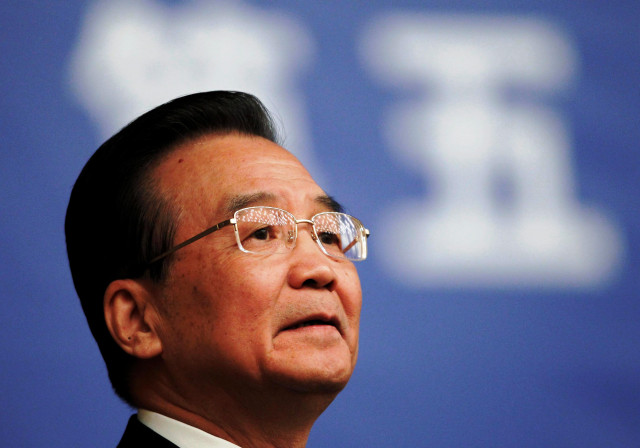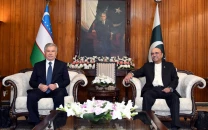Jiabao arrives today: Opening new vistas of cooperation
Islamabad looks to derive optimum benefits from Chinese premier’s visit.

Pro-West policies apart, Islamabad would never compromise on its ties with China at any cost.
Often hailed as higher than the Himalayas and deeper than the Indian Ocean, relations between Pakistan and China have always been much more than simple diplomacy run by officials in an emotionless, mechanical way.
“There are several natural factors that turn Islamabad-Beijing diplomatic relations into a kind of romance,” commented Irfan Shahzad, who has been observing ties between the two countries for years now at an Islamabad think tank as a researcher.
“They (relations) are primarily driven by the interdependence. That’s why both countries have been indispensible for each other right from their infancy.
It is perhaps this interdependence that is forcing Islamabad to look towards Beijing when the country struggles to overcome a chronic political instability and almost crippling economy.
And China has never let its troubled neighbour down and, as it looks, it never will.
This, observers say, is the message Chinese Prime Minister Wen Jiabao would arrive in Islamabad with on Friday at the head of a 250-strong delegation of entrepreneurs from his country with bags full of cash to invest.
Islamabad is hoping a lot from the tour that comes on the heels of Wen’s trip to New Delhi where he had been trying to charm Indian political and business leaders to help the two countries set aside a decade-old border dispute to focus on capitalising opportunities available to them.
Already in Islamabad on Wednesday evening, Prime Minister Yousaf Raza Gilani set an agenda for Wen’s tour by saying that Pakistan was considering an even greater role for China in its deep-sea port in Gwadar.
The port off the shores of Balochistan has been at the centre of Sino-Pak relations of late.
For Beijing, the facility can be a lifeline for its ever-surging exports to the outside world.
The Pakistan government has recently been dropping hints to scrap a deal for the 40-year lease of Gwadar port with Singapore Port Authority (SPA) for running the operations of the port.
Chinese export-oriented economy has been helping the country and has a very entrenched political clout in the region and in the world, a fact Pakistan seems to be aware of.
“That’s why there has been a tilt, though very cautious, towards Beijing recently,” said Shahzad, whose Institute of Policy (IPS) think tank focuses on China and Central Asia.
Look East policy has of late been the buzzword in Pakistan’s diplomatic and political corridors. Though its features are still vague, experts argue it presents a blueprint for Pakistan’s future diplomacy.
Unlike Islamabad’s relations with West, Sino-Pak ties are not driven by ‘artificial’ factors like political expediency and security concerns.
“There has always been a win-win situation for both. They have a lot to offer each other and that has been the hallmark,” Irfan added.
As China looks for what is referred as trade corridors through Pakistan soil and sea, Islamabad is hoping for several gains from the relationship as well.
Above all is civilian nuclear cooperation to overcome its energy woes getting deeper with the times.
Whether Islamabad confined itself to symbolic gestures like boycotting at international forums any move that hurts Chinese interests or go further than that is expected to be clear after the trip, albeit partially.
Published in The Express Tribune, December 17th, 2010.



















COMMENTS
Comments are moderated and generally will be posted if they are on-topic and not abusive.
For more information, please see our Comments FAQ